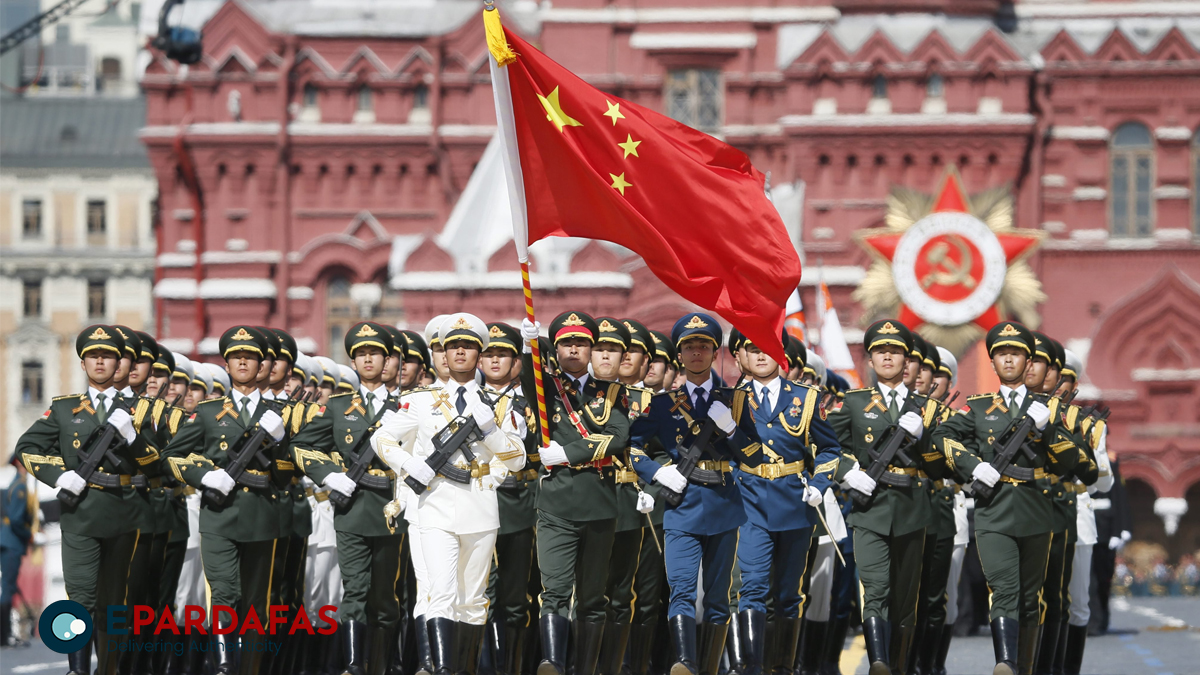
China Implements Largest Military Restructuring in Almost a Decade: Information, Cyber, and Space Units Established
In a strategic move aimed at bolstering its military capabilities, China has initiated its most extensive military reorganization in nearly nine years. The restructuring sees the dissolution of the old Strategic Support Force and the establishment of three distinct units dedicated to information, space, and cyber operations within the People’s Liberation Army (PLA).
The newly formed Information Support Force assumes a pivotal role, tasked with the collection, analysis, and dissemination of crucial intelligence, alongside the construction of robust communication networks and the safeguarding of essential systems. Chinese President Xi Jinping underscored the significance of information dominance in modern warfare during an event commemorating the creation of the Information Support Force, emphasizing its pivotal role in ensuring victory in contemporary conflicts.
Heading the Information Support Force is Lt. Gen. Bi Yi, a seasoned military leader with previous experience as the deputy commander of the PLA Ground Force. The restructuring signifies a departure from the previous configuration, reflecting China’s evolving military doctrine and its recognition of the critical role played by information, cyber, and space capabilities in contemporary security paradigms.
In an editorial published in the People’s Liberation Army Daily, the official newspaper of the PLA, it was asserted that modern warfare is fundamentally a contest of systems, with those possessing superior information capabilities gaining a decisive edge. This sentiment underscores China’s strategic imperative to invest in cutting-edge technologies and specialized units tailored to meet the demands of 21st-century conflict scenarios.
The PLA now comprises four primary branches – ground, navy, air, and rocket – alongside four specialized arms, including information, aerospace, cyber, and joint logistics support. The reorganization aligns with China’s broader ambition to modernize its military apparatus, enhancing its operational efficiency and adaptability in an increasingly complex security environment.
Defense Ministry spokesman Wu Qian articulated the rationale behind the establishment of the cyber and aerospace forces, citing the imperative to fortify national cyber defenses, combat network intrusions, and exploit outer space for strategic advantage. President Xi’s directive earlier in March emphasized the strategic significance of cyberspace and outer space, underscoring their emergence as pivotal domains in the contemporary security landscape.
The restructuring consolidates these emerging domains under the direct purview of the Central Military Commission, the apex decision-making body overseeing China’s military affairs, with President Xi at its helm. The move reflects China’s commitment to assertive military modernization efforts under Xi’s leadership, signaling its intention to reinforce its position as a global military power.
Analysts suggest that the restructuring aims to enhance the specialization and autonomy of each military arm, enabling a more focused and efficient approach to information, cyber, and space operations. This strategic realignment underscores China’s resolve to adapt to evolving security challenges and assert its influence across multiple domains of warfare.
The latest restructuring represents the most significant overhaul of China’s military since 2015, when Xi initiated reforms aimed at streamlining the PLA’s organizational structure and optimizing its operational capabilities. Notably, the 2015 reforms sought to modernize the PLA by reducing its manpower and reconfiguring its command structure, marking a significant departure from traditional military paradigms.
Amidst these sweeping changes, President Xi’s anti-corruption campaign continues unabated, with reports emerging of investigations into alleged corrupt practices within the PLA. Former Defense Minister Li Shangfu has reportedly come under scrutiny for his suspected involvement in illicit dealings related to equipment procurement, underscoring China’s efforts to root out corruption and ensure the integrity of its military institutions.
As China charts a course towards comprehensive military modernization, the establishment of specialized units dedicated to information, cyber, and space operations signals its intent to adapt to emerging security challenges and assert its influence on the global stage. The restructuring reflects President Xi’s vision of a modern, technologically advanced PLA capable of safeguarding China’s national interests and projecting power in an increasingly contested strategic environment.















Comments